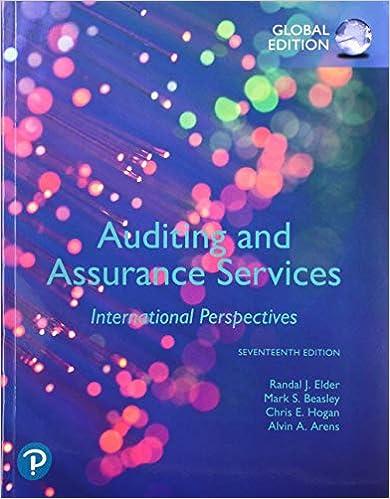Question
Harvard Business School Case: T Rowe Price Case Questions Note: all case questions are real world questions. They require you to creatively use the knowledge
Harvard Business School Case: T Rowe Price Case Questions Note: all case questions are real world questions. They require you to creatively use the knowledge from the handouts and book to solve them. Answers cannot be directly found from the handouts and book. 1. Around the time period between 11:00 and 11:59 when Greg was negotiating with Goldman and Kidder, what would be the most likely fair value for Avantek that would be accepted by both market makers? (3 Points) A. 23 1/2 B. 24 6/8 C. 24 5/8 D. 24 2. What would be the most likely fair value during that period for Tandem that would be accepted by Goldman? (3 Points) A. 15 B. 15 C. 15 Hint: Each market makers fair value is usually the mid-point of his bid and ask prices. There are multiple market makers/dealers for a stock on the OTC market. Goldman and Kidder are market makers. T. Rowe Price is a normal trader. If the true value of the stock is 100 and a trader sells the stock to the market maker at 95, the cost (relative to the fair value) for the trader is 5. Market maker makes a 5-dollar profit (relative to the fair value). Bid (sell) price is the price that market maker buy (sell) stocks. If a market maker believes the true value of a stock is 100, his bid and ask are, e.g., 95 and 105. Traders are going to trade with the market maker at either 95 (sellers) or 105 (buyers). You are going to see a sequence of transaction prices of, for example, 95, 105, 95, 105, 105 with 95 and 105 randomly showing up on screen, because buyers and sellers randomly arrive at the market and trade with the market maker. To find market makers bid and ask, as well as fair value, you need to examine the transaction price history during the time when T Rowe Price made the phone call, i.e., the exhibits at the end of the case. Using the market makers fair value your answered in Question 1 and 2, please do a transaction cost analysis for T Rowe Price in Question 3 and 4. Ignore commissions, i.e., set them to be zero in all calculations. 3. How much total transaction cost (note: not cost per share, but the cost of all shares) would Greg incur relative to the fair value if he sold to Kidder? (2 Points) 4. How much total transaction cost (note: not cost per share, but the cost of all shares) would Greg incur relative to the fair value if he were to accept Michael's terms in CASE A? (2 Points) 5. Kidder provides research for T Rowe Price for nothing. Why they want to do that? (2 Points) 6. Why Greg went to Kidder first instead of Goldman? (2 Points) 7. If a block was sold in several small lots in this case, what would be the consequence of doing that? Could T Rowe do that instead of selling the block entirely to Goldman? (2 Points) 8. Perhaps Michael is just being greedy. Can Greg walk away if better terms are not forthcoming? What are the pros and cons of doing that? (2 Points) 9. Why include Tandem in the deal? Wouldnt that make the deal complicated? In other words, was it a sweetener (more business to Goldman)? Or something more subtle? (2 Points) 10. What is the final total transaction cost (note: not cost per share, but the cost of all shares) incurred relative to the fair values of Avantek and Tandem after the traders negotiation in Case B? Is the trader Greg skillful (in the sense of reducing a nontrivial amount of transaction cost)? (2 Points) 11. What is the basic problem Greg faces in trying to dispose the block of Avantek shares? What advice would you give him if he could do it all over again given you have known what he has done in both Case A and B? (3 Points)
The website link to obtain the Harvard Business School case is the following:
Case A http://hbr.org/product/At-the-T--Rowe-Price-Trad/an/285041-PDF-ENG Case B http://hbr.org/product/at-the-t-rowe-price-trading-desk-b/an/285042-PDF-ENG
Step by Step Solution
There are 3 Steps involved in it
Step: 1

Get Instant Access to Expert-Tailored Solutions
See step-by-step solutions with expert insights and AI powered tools for academic success
Step: 2

Step: 3

Ace Your Homework with AI
Get the answers you need in no time with our AI-driven, step-by-step assistance
Get Started


